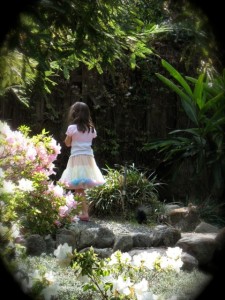 It seems to settle deepest at the end of summer, in the stark raving middle of withering heat and drought, in the geologic layers of dust, grit and cobwebs that converge at this time of year. It’s dirt, and my house is full of it. It’s a good time to remember these 5 Tips for Finding Meaning in Cleaning:
It seems to settle deepest at the end of summer, in the stark raving middle of withering heat and drought, in the geologic layers of dust, grit and cobwebs that converge at this time of year. It’s dirt, and my house is full of it. It’s a good time to remember these 5 Tips for Finding Meaning in Cleaning:
1. Make it meditative. Focus on the doing, not the getting done. The motion of simple, repetitive tasks can make you more attentive and calm – the back and forth of the vacuum cleaner or dust rag, the concentrated effort of spot cleaning, the methodical sorting of laundry – chores are meditative, as long as you’re not thinking about how much you hate them. The key to mindfulness is not thinking something lofty, but thinking nothing at all, and it doesn’t take any thinking to clean the sink. Throw open the windows and doors! Spring cleaning is spring break for your brain.
2. Find what you’ve been missing. We spend most of our lives ignoring what’s in front of us and looking instead for something more. The life we already have doesn’t seem like it’s worth our time or effort. The life right now is the only life we have, and when we don’t take care of it, we reinforce our feelings of inadequacy. Seeing things clearly is the foundation of wisdom and the path to genuine fulfillment. Plus, you’ll find your car keys faster.
3. Enfold your life in dignity. Carry out the garbage and it carries over into every part of your life. A cluttered closet reflects the distraction and disorder between your ears. The state of your bed is the state of your head. The daily rituals of housecleaning enfold your life in dignity, because they are nothing other than the way you care for yourself. read more



 Last week a friend told me the story of how her daughter learned to swim. She refused at first, terrified that she would sink to the bottom and drown.
Last week a friend told me the story of how her daughter learned to swim. She refused at first, terrified that she would sink to the bottom and drown. Registration is now open for the
Registration is now open for the  I’m giving away a copy of the book,
I’m giving away a copy of the book, 

 I watched the lovely
I watched the lovely  Where do you come from?
Where do you come from? Conventional wisdom has it that Los Angeles is sinking into the Pacific. One more quake, they say, and this silly sandcastle will be swept offshore. But they have it upside down. We’re already on the bottom of the sea. Five million years ago, seismic storms pushed the Pacific crust to the surface of the Earth. We are the children of a risen ocean. We scuff our shoes on its billowy floor.
Conventional wisdom has it that Los Angeles is sinking into the Pacific. One more quake, they say, and this silly sandcastle will be swept offshore. But they have it upside down. We’re already on the bottom of the sea. Five million years ago, seismic storms pushed the Pacific crust to the surface of the Earth. We are the children of a risen ocean. We scuff our shoes on its billowy floor. The beginning of
The beginning of  Every now and then I talk to groups of nervous parents. All parents are nervous. Under the surface of relative calm and confidence, we worry ourselves sick. I try to take some of the doubt and turn it into trust.
Every now and then I talk to groups of nervous parents. All parents are nervous. Under the surface of relative calm and confidence, we worry ourselves sick. I try to take some of the doubt and turn it into trust.

